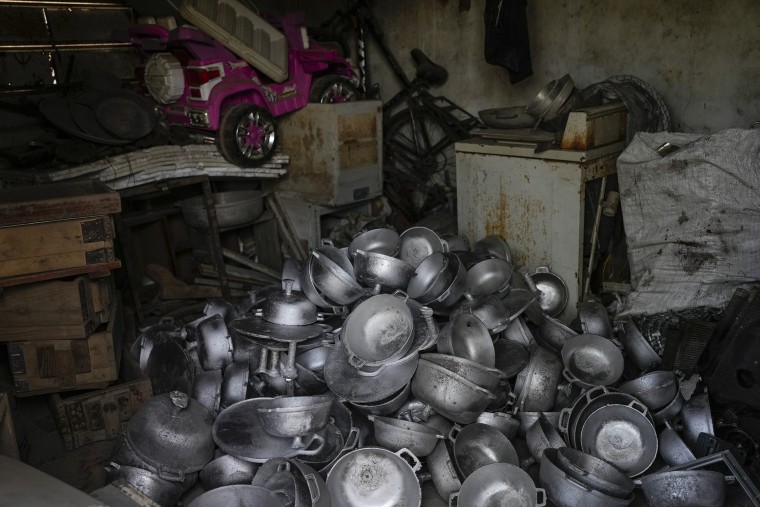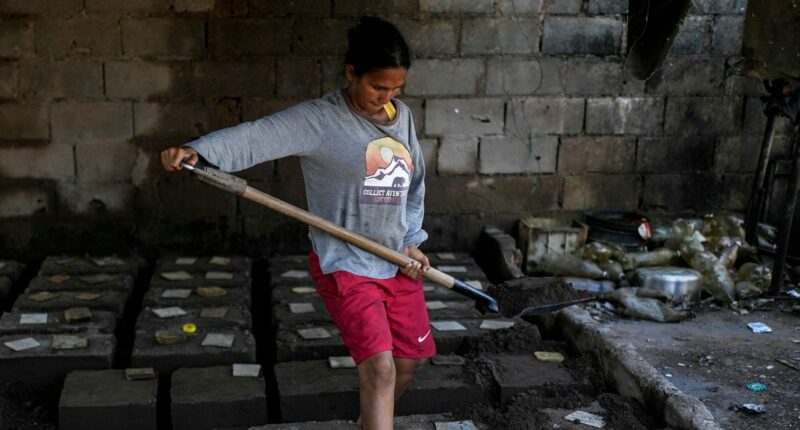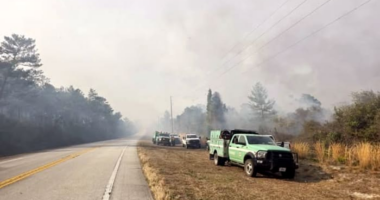Share this @internewscast.com
She, her husband and five children returned to their South American country in March.
COVID-19 pandemic pushed migrants to the U.S.
Since 2013, over 7.7 million Venezuelans have left their homeland when the economy, heavily reliant on oil, collapsed. Initially, most resettled in Latin America and the Caribbean, but following the COVID-19 pandemic, many perceived the U.S. as the most promising option for improving their lives.
Numerous Venezuelans found entry into the U.S. through programs granting them work permits and protection from deportation. However, as of January, the White House has revoked these protective measures, actively pursuing deportations in line with U.S. President Donald Trump’s campaign agenda to curb immigration.
Venezuelan leader Nicolás Maduro, who had previously resisted taking back deported citizens, altered his stance under U.S. pressure earlier this year. Now, deportees regularly arrive on flights to Caracas operated by a U.S. government contractor or Venezuela’s national airline.
The U.S. government has defended its stringent actions, such as sending over 200 Venezuelans to a detention facility in El Salvador for four months, claiming that many of these individuals were part of the dangerous Tren de Aragua gang. No concrete proof was provided to support this sweeping allegation. Yet, several deported individuals assert they were unfairly targeted due to their tattoos, which authorities allegedly used as justification for deportation.
Maduro declared ‘economic emergency’
Those returning, like Pérez and her kin, are encountering more challenging conditions than before they left, as a currency crisis, soaring inflation, and poor wages have made essentials unaffordable. The items they sold off prior to migration, such as vehicles and electronics, seem out of reach now. With the minimum monthly wage in Venezuela stuck at 130 bolivars, equal to $1.02 as of Monday, since 2022, many people juggle multiple jobs just to make ends meet.
This latest chapter in the 12-year crisis even prompted Maduro to declare an “economic emergency” in April.
David Rodriguez migrated to Colombia and Peru twice before aiming for the U.S. He departed Venezuela in the previous year, braving the perilous Darien Gap by foot, traversing Central America, and moving through Mexico by train and bus. Upon turning himself in to U.S. immigration in December, he was held for 15 days and then deported back to Mexico.
Broke, the 33-year-old Rodriguez worked as a mototaxi driver in Mexico City until he saved enough money to buy his airplane ticket back to Venezuela in March.
“Going to the United States … was a total setback,” he said while sitting at a relative’s home in Caracas. “Right now, I don’t know what to do except get out of debt first.”
He must pay $50 a week for a motorcycle he bought to work as a mototaxi driver. In a good week, he said, he can earn $150, but there are others when he only makes enough to meet the $50 payment.
Migrants seek loan sharks
Some migrants enrolled in beauty and pastry schools or became food delivery drivers after being deported. Others already immigrated to Spain. Many sought loan sharks.
Pérez’s brother-in-law, who also made aluminum cookware before migrating last year, is allowing her to use the oven and other equipment he left at his home in Maracaibo so that the family can make a living. But most of her earnings go to cover the 40% monthly interest fee of a $1,000 loan.
If the debt was not enough of a concern, Pérez is also having to worry about the exact reason that drove her away: extortion.
Pérez said she and her family fled Maracaibo after she spent several hours in police custody in June 2024 for refusing to pay an officer $1,000. The officer, Pérez said, knocked on her door and demanded the money in exchange for letting her keep operating her unpermitted cookware business in her backyard.

She said officers tracked her down upon her return and already demanded money.
“I work to make a living from one day to the next … Last week, some guardsmen came. ‘Look, you must support me,’” Pérez said she was told in early July.
“So, if I don’t give them any (money), others show up, too. I transferred him $5. It has to be more than $5 because otherwise, they’ll fight you.”











